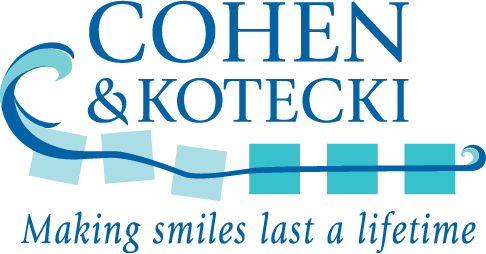5 Need to Know Benefits of Early Orthodontics Treatment

Early orthodontic treatment (which is also known as interceptive treatment) entails much more than just straightening a young person’s teeth. It involves addressing any issues with a child’s teeth, bite, or jaw while they still have some of their baby teeth left.
You might be wondering why early orthodontic treatment is necessary, and if so, you’re not alone. Early orthodontic treatment is really important because it can significantly improve a child’s future oral health (and make the path to straight teeth much easier down the line).
Many orthodontists recommend that kids see an orthodontist around the age of seven. By this age, a child typically has enough permanent teeth for an orthodontist to assess how their teeth, jaw, and bite are developing.
If you’ve been looking for a kid’s orthodontist in Philadelphia and want to know more about early orthodontics treatment, you’re in the right place! We’ll be talking about the main benefits of early orthodontic treatment and answering any questions you might have below.
Why is Early Orthodontics Treatment Important?
The main reason for early orthodontic treatment is to catch and correct any developing problems before they become serious. You may not always notice something is wrong with your child’s teeth, but orthodontists are trained to see certain issues.
By dealing with these concerns (which we’ll discuss shortly) early on, an orthodontist will be able to guide the growth of your child’s jaw and teeth. This will reduce the need for more intensive treatments (like braces) later on. So, what might an orthodontist look for in young kids? Here are a few common issues:
Underbite or Crossbite
These issues occur when the upper and lower jaws don’t align properly. This can cause pain and discomfort, so it’s definitely not something to ignore.
Crowded Teeth
This happens when there isn’t enough space in a child’s mouth for their teeth to grow in straight. In this instance, braces for kids or Invisalign for kids could be helpful.
Gaps or Missing Teeth
This particular issue is fairly common, and it may require orthodontic devices to hold the space for your child’s adult teeth to grow in.
Abnormal Biting Patterns
If a child’s teeth meet irregularly, it can cause uneven wear or even damage to their teeth. Invisalign for kids could prevent or even solve this issue.
Habits Like Thumb-Sucking
Habits like thumb-sucking can push a child’s teeth out of alignment. It’s best to discourage your kid(s) from thumb-sucking, but it’s a pretty common habit.
While not all of these problems require immediate action, early orthodontic treatment could be very helpful. Make sure to take your kid in for regular check-ups so that their orthodontist can monitor their teeth and address potential issues as they come up.
The Benefits of Early Orthodontic Treatment
Early orthodontic treatment can make a world of difference for your child’s confidence and oral health. Let’s take a closer look at some of the reasons why early orthodontic treatment is so beneficial below:
Helps Adult Teeth Come in Correctly
When a child loses their baby teeth too early, nearby teeth can drift into the open space. Unfortunately, this can sometimes prevent adult teeth from coming in straight.
An orthodontist might use appliances like spacers or other devices to keep your child’s teeth in place and help guide the adult teeth as they come in. This proactive approach can make future treatment with braces or Invisalign for kids less complicated.
Fixes Bite and Speech Issues
Orthodontists don’t just straighten people’s teeth. They can also help with aligning your bite. A “bad bite,” or malocclusion, happens when the teeth don’t fit together properly (which can cause jaw pain, headaches, and even trouble chewing). It’s also a common source of speech issues.
Early orthodontic intervention can make more space for teeth and correct bite problems while a child’s jaw is still developing. By addressing these issues early, children have a better chance of developing normal speech patterns and avoiding issues with chewing and swallowing.
Reduces the Risk of Oral Health Problems
When teeth are straight, they’re much easier to brush and floss. This reduces the risk of cavities, gum disease, and other oral health problems. Crooked teeth, on the other hand, will often trap food particles and can be harder to clean properly — especially for children.
This is another reason why starting orthodontic treatment early is a good idea. An orthodontist can help prevent or minimize these problems. Both you and your child will feel better knowing that their teeth and mouth will stay healthy as they grow.
Makes the Process of Getting Braces Easier
For kids who do end up needing braces, early orthodontic treatment can make the entire process easier. If your orthodontist has already addressed certain issues (like overcrowding, bite problems, or misalignment), the time that your kid spends in braces might be shorter and less intense.
Invisalign for kids can also be a great option if your child’s orthodontist has already done some groundwork to create a stable, healthy bite. Philly Braces (Cohen & Kotecki) offers Invisalign in Philadelphia, so don’t hesitate to reach out if you’re interested in exploring Invisalign as an option for your kid.
Saves Time and Money
Orthodontic treatment can be a huge investment. When problems are left untreated until later, they often require more complicated (and expensive) solutions. This is why it’s a good idea to act early. You could potentially save thousands of dollars in orthodontic costs over time.
Conclusion
Early orthodontic treatment can be a huge commitment, but the benefits are definitely worth it. Just think about it — you’ll be setting your child up for a smoother orthodontic experience (even if they do end up having to get braces or Invisalign later on).
If you’re considering early orthodontic treatment for your kid, we’ve got your back. At Philly Braces, we specialize in orthodontic treatment for kids, and want to make sure that your kid has the best possible experience with early intervention.








